
Mary Jean "Lily" Tomlin is an American actress, comedian, writer, singer, and producer. Tomlin started her career in stand-up comedy and sketch comedy before transitioning her career to acting onstage and on-screen. In a career spanning over fifty years, Tomlin has received numerous accolades, including seven Emmy Awards, a Grammy Award, and two Tony Awards. She was also awarded the Kennedy Center Honor in 2014 and the Screen Actors Guild Life Achievement Award in 2017.
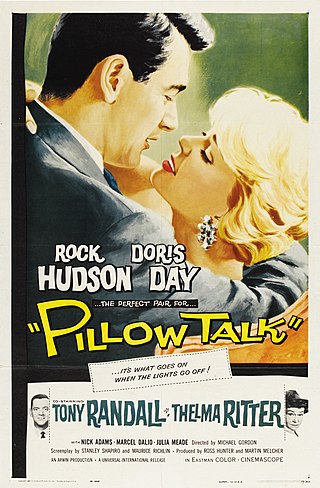
Pillow Talk is a 1959 American romantic comedy film in CinemaScope directed by Michael Gordon and starring Rock Hudson and Doris Day. The supporting cast features Tony Randall, Thelma Ritter, Nick Adams, Allen Jenkins, Marcel Dalio and Lee Patrick. The film was written by Russell Rouse, Maurice Richlin, Stanley Shapiro, and Clarence Greene.
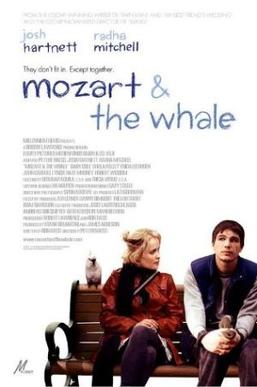
Mozart and the Whale is a 2005 romantic comedy-drama film directed by Petter Næss and starring Josh Hartnett and Radha Mitchell. The film is loosely based on the lives of Jerry and Mary Newport.

Man of the House is a 2005 American crime comedy film directed by Stephen Herek. The film stars Tommy Lee Jones as Roland Sharp, a lonesome Texas Ranger who goes undercover as an assistant coach to protect a group of college cheerleaders who have witnessed a murder. Much of the film was shot in Austin, Texas on the University of Texas campus.

Wonderland is a 2003 American crime drama film, co-written and directed by James Cox and based on the real-life Wonderland Murders that occurred in 1981. The film stars Val Kilmer, Kate Bosworth, Dylan McDermott, Carrie Fisher, Lisa Kudrow, Josh Lucas, Christina Applegate, Tim Blake Nelson, and Janeane Garofalo. Kilmer plays the role of John Holmes, a famous pornographic film star and suspected accomplice in four grisly murders committed in a house at 8763 Wonderland Avenue, in the Laurel Canyon section of Los Angeles. The film uses a nonlinear Rashomon-style narrative structure to present conflicting accounts of the murders from differing perspectives.

Magic Town is a 1947 American comedy film directed by William A. Wellman and starring James Stewart and Jane Wyman. The picture is one of the first films about the then-new practice of public opinion polling. The film was inspired by the Middletown studies. It is also known as The Magic City.

L'Eclisse is a 1962 Italian romance film written and directed by Michelangelo Antonioni and starring Alain Delon and Monica Vitti. Filmed on location in Rome and Verona, the story follows a young woman (Vitti) who pursues an affair with a confident young stockbroker (Delon). Antonioni attributed some of his inspiration for L'Eclisse to when he filmed a solar eclipse in Florence. The film is considered the last part of a trilogy and is preceded by L'Avventura (1960) and La Notte (1961).
"The Cost" is the tenth episode of the first season of the HBO original series The Wire. The episode was written by David Simon from a story by David Simon and Ed Burns and was directed by Brad Anderson. It originally aired on August 11, 2002.
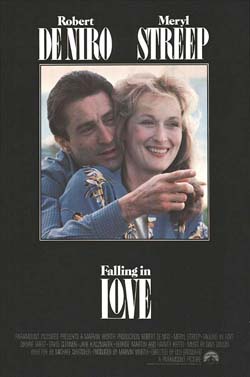
Falling in Love is a 1984 American romantic drama film directed by Ulu Grosbard, written by Michael Cristofer, and starring Robert De Niro and Meryl Streep. The film received mixed reviews, and was a box office bomb.
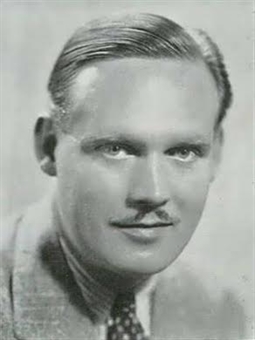
Cyril William North Raymond MBE was a British character actor. He maintained a stage and screen career from his teens until his retirement, caused by ill health, in the 1960s.

Seven Days to Noon is a 1950 British political thriller film directed by John and Roy Boulting and starring Barry Jones.

Beyond the Clouds is a 1995 Italian-French-German romance film directed by Michelangelo Antonioni, with contributions by Wim Wenders, and starring John Malkovich, Sophie Marceau, Vincent Perez, Irène Jacob, Fanny Ardant, Jeanne Moreau, Peter Weller, Marcello Mastrioanni, and Jean Reno. The film consists of four stories of romantic love and illusion told from the perspective of a wandering film director. In the first story, two beautiful young lovers are unable to consummate their passion because the young man desires impossible perfection. In the second story, the director makes love to a young woman who reveals that she murdered her father. In the third story, a man makes an effort to appease both his wife and his mistress. In the fourth story, a young man is infatuated with a girl who is about to enter a convent. This was the final feature-length film by Antonioni before his death in 2007.
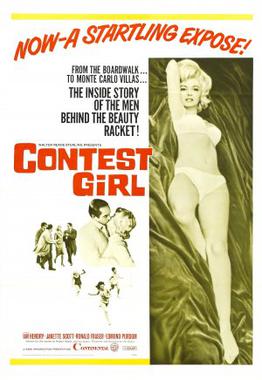
The Beauty Jungle is a 1964 British film directed by Val Guest.
Janina Faye Smigielski is an English actress and director.
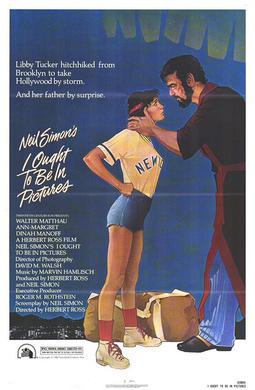
I Ought to Be in Pictures is a 1982 American comedy-drama film directed by Herbert Ross and based on Neil Simon's 1980 play of the same name. The film stars Walter Matthau, Ann-Margret, and Dinah Manoff. Other actors who have supporting roles are Lance Guest, Eugene Butler, David Faustino, Martin Ferrero and Michael Dudikoff.
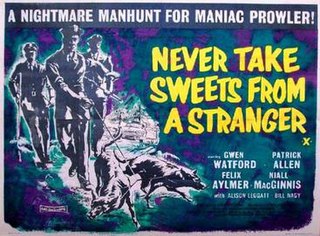
Never Take Sweets from a Stranger is a 1960 British thriller drama film, directed by Cyril Frankel and starring Patrick Allen, Gwen Watford, Janina Faye and Felix Aylmer. The screenplay was by John Hunter based on the 1954 play The Pony Cart by Roger Garis. It was produced by Hammer Films. The twin themes of the film are paedophilia and child sexual abuse, and the way in which those with sufficient pull can corrupt and manipulate the legal system to evade responsibility for their actions. The film is regarded as bold and uncompromising for its time.

Evidence is a 2013 crime thriller film directed by Olatunde Osunsanmi and written by John Swetnam. The film stars Torrey DeVitto, Caitlin Stasey, Harry Lennix, Svetlana Metkina, Dale Dickey, Radha Mitchell, and Stephen Moyer and was released by Bold Films on July 19, 2013. It follows two detectives on their investigation of a brutal massacre, with their only leads being recording devices found at the crime scene.

The Exorcism of Molly Hartley is a 2015 American supernatural horror film written by Matt Venne and directed by Steven R. Monroe. The film is a sequel to the 2008 film The Haunting of Molly Hartley. It was released on Digital HD on October 9, 2015, and on Blu-ray on October 20, 2015.
Gillian Lind was a British stage, film and television actress. In 1930 she starred in Edgar Wallace's play On the Spot in the West End. She went on to enjoy a long career in film and television. Initially appearing onscreen as a female lead, she later transitioned into character roles. In 1957 she appeared in the BBC Dickens adaptation Nicholas Nickleby as the protagonist's mother. She featured on the 1964 series Ann Veronica based on a novel by H.G. Wells.

Disconnected is a 1984 American psychological slasher film produced and directed by Gorman Bechard, written by Bechard and Virginia Gilroy, and starring Frances Raines, Mark Walker, and Carl Koch. Its plot follows Alicia, a young video rental store clerk in a small Connecticut town who is tormented by bizarre, unearthly phone calls. Meanwhile, a string of violent serial killings are occurring amongst locals.

















